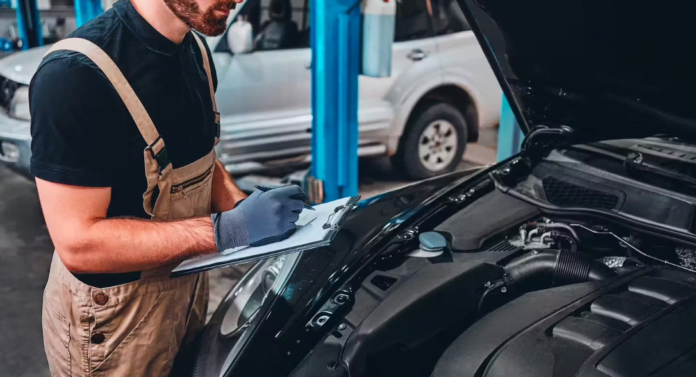Understanding the Importance of Car Batteries
Car batteries play a vital role in the overall functionality and performance of a vehicle. They are responsible for supplying the necessary power to start the engine, ensuring the ignition system operates effectively. Without a well-functioning battery, starting the vehicle becomes a formidable task, which can lead to significant delays and inconvenience.
Beyond engine ignition, car batteries are essential in running a vehicle’s electrical systems. This includes headlights, interior lighting, and essential safety features like ABS brakes and airbags. Moreover, they support additional accessories such as audio systems, GPS navigation, and climate control. The modern vehicle’s dependency on electrical power underscores the crucial nature of a robust battery.

The performance of a car’s battery directly influences the overall reliability and safety of the vehicle. A healthy battery helps to prevent unexpected breakdowns, which can pose a safety risk, especially in less-than-ideal driving conditions. Consistent maintenance and regular checks of the battery’s health can go a long way in maintaining a smooth and safe driving experience.
Battery health also affects fuel efficiency. An underperforming battery can cause the alternator to work harder, which in turn puts additional strain on the engine and increases fuel consumption. Maintaining an optimal battery condition can contribute to better fuel economy, helping drivers save on fuel costs over time.
Environmental factors also come into play when discussing car batteries. A battery in good condition minimizes the risk of releasing hazardous substances due to leaks or malfunctions. Regular battery maintenance and appropriate disposal at the end of its life cycle can significantly reduce the environmental impact.
In essence, car batteries are more than just a component; they form the heartbeat of the vehicle’s electrical and operational systems. Understanding their importance, performing consistent maintenance, and recognizing signs of battery wear are crucial steps in ensuring not only vehicle performance but also driving safety and efficiency.
Choosing the Right Battery for Your Car
Selecting the appropriate car battery is crucial to ensuring optimal performance and longevity. With diverse types of batteries available in the market, such as lead-acid, AGM (Absorbent Glass Mat), and lithium-ion, understanding their differences is essential.
Lead-acid batteries, the most common type, are cost-effective and reliable. However, they require regular maintenance and may not last as long as other options. AGM batteries, on the other hand, offer superior performance, are maintenance-free, and provide higher power output, making them ideal for vehicles with advanced electronic systems. Lithium-ion batteries are the newest in automotive technology, boasting lightweight, long life, and quick charging capabilities. Despite these advantages, their higher cost can be a deterrent for some buyers.
When choosing a battery, consider your car’s make and model, driving conditions, and climate. Vehicles designed for heavy-duty usage or those with numerous electronic accessories may benefit from AGM or lithium-ion batteries due to their higher output and endurance. Conversely, a standard lead-acid battery may suffice for ordinary commuting cars.
Understanding battery specifications is paramount for compatibility and performance. The voltage, typically 12V for most cars, must match your vehicle’s requirements. Capacity, measured in ampere-hours (Ah), indicates how much charge the battery can store. A higher capacity battery can support prolonged usage without recharging. Cold cranking amps (CCA) denote the battery’s ability to start an engine in cold temperatures, a crucial factor in colder climates.
Additionally, invest time in researching reputable brands and reading customer reviews to gauge reliability and longevity. Trusted brands often provide better warranties and customer support, significantly impacting overall satisfaction.
By considering these factors—battery types, vehicle specifications, and consumer reviews—you can make an informed decision, ensuring a reliable power source for your car in various conditions.
Tips for Proper Battery Maintenance and Usage
Maintaining your car battery properly is essential for maximizing its lifespan and ensuring reliable performance. Adopting optimal charging practices is a key step. One such practice is avoiding deep discharges – it is vital to recharge the battery before it drops below 50% of its capacity. Regular charging cycles help maintain the battery’s health, especially for vehicles that are not driven frequently. It’s recommended to use a smart charger that automatically adjusts the charging rate to prevent overcharging or undercharging.
Keeping the battery terminals free from dirt and corrosion is another crucial aspect of car battery maintenance. Clean the terminals periodically with a solution of baking soda and water, and use a wire brush to scrub away any built-up corrosive residue. After cleaning, applying a dielectric grease can help prevent future corrosion. Furthermore, ensuring that the battery is securely mounted helps prevent vibrations that can cause internal battery damage.
It’s essential to be mindful of using power-draining accessories when the engine is off. Electrical accessories such as lights, radios, and charging devices can significantly drain the battery. To prevent an unnecessary drain, always turn off these accessories before switching off the engine. Additionally, ensuring the vehicle’s electrical system is in good condition is imperative. Faulty alternators or voltage regulators can lead to overcharging or undercharging, which may reduce battery life.
Seasonal changes, especially extreme weather conditions, can significantly influence battery performance. In colder climates, using a battery warmer can help maintain optimal performance. Conversely, in hotter temperatures, parking in the shade or using a reflective sunshade can mitigate the adverse effects of excessive heat on the battery. Regular inspections during these periods are recommended to ensure the battery is functioning correctly and to check for any signs of damage.
By incorporating these maintenance tips, you can enhance the longevity and reliability of your car battery, thus ensuring your vehicle remains dependable across various conditions.
Troubleshooting Common Car Battery Problems
Car battery issues can lead to inconvenient and potentially dangerous situations if not addressed promptly. Recognizing the symptoms of a failing battery is the first step in resolving these problems effectively. Common indicators include a slow engine crank, dim headlights, or other electrical malfunctions. If you experience these signs, it’s critical to check the battery’s health promptly.
One practical method to diagnose a battery problem is by using a multimeter to measure the voltage levels. Ideally, a fully charged car battery should read around 12.6 volts or above when the engine is off. If the voltage is significantly lower, it indicates a low charge or a failing battery.
Beyond voltage tests, performing a visual inspection of the battery can reveal issues such as leaks, swelling, or visible damage. These physical signs often denote that the battery is no longer functioning optimally and may need replacing. Additionally, be keen on warning signs from the vehicle’s dashboard indicators, such as the battery warning light, which alerts you to underlying issues.
When encountering battery problems, there are several solutions to consider. Recharging a flat battery using a portable charger can provide a temporary fix. If the battery is completely dead, jump-starting the car is a viable option. This process involves connecting the car battery to another vehicle’s battery with jumper cables. However, if the battery repeatedly fails or shows signs of severe damage, it may be time to replace it.
Regular battery check-ups are essential as part of routine vehicle maintenance because they help preempt unexpected failures. Ensuring that terminal connections are clean and tight, and checking the electrolyte levels in non-sealed batteries can prolong the life of the battery. Routine check-ups can avoid costly repairs and ensure that your vehicle operates smoothly.
By recognizing the symptoms of a failing battery, knowing how to diagnose issues, and taking appropriate corrective measures, you can enhance the lifespan of your car battery and maintain the reliable performance of your vehicle.


